The Quest To Create A New Kind Of Reality
[Issue 1] Metaverse Hardware
Hey all, Robin here. Today we will be doing a deep dive into Metaverse Hardware and the future of hardware in general.
Hardware is the most underrated aspect of discussion when talking about the Metaverse because most people seem to believe we’re just going to continue using computers as our primary workstations. I disagree and think that, in time, the computer will be replaced with a virtual reality headset and that the phone will be replaced with smart glasses that can do more than a phone ever could.
Right now, nearly every computing company in the world from Amazon, Google, Apple, IBM, Microsoft, Intel, Comcast, Qualcomm, and Meta (Facebook) in the US; Baidu, Alibaba, ByteDance, and Tencent in China; Samsung and LG in South Korea; and Sony, Canon, and Panasonic in Japan are all racing towards on a quest to bring virtual and augmented reality to the world.
Now, the unexpected side effect of all these companies betting on virtual and augmented reality is that they’re likely going to do one of two things:
Create these virtual worlds or “Metaverses” to be walled gardens or centralized and controlled to ease people into the idea (in a similar way to what AOL did with the internet)—most likely scenario.
Enable anyone to connect to any virtual world decentralized or centralized like the internet—least likely scenario due to it being a new concept and consumers having no idea how to navigate the world.
It all starts with the hardware and why hardware is the most important part of the Metaverse. It’s the onramp and we’re letting centralized companies decide the future.
This first issue will cover the hard world of hardware and why I believe that our phones and computers will either be outright replaced or be used less and less.
Palmer Lucky, Oculus, the usurper that became an 800 pound gorilla, and non-invasive neural interfaces
If you’ve heard of Silicon Valley then you’ve probably heard of Oculus. They’re a company that makes virtual reality headsets (headsets that immerse users inside virtual worlds as if they were actually there). It was acquired by Facebook in 2014 for a whopping $2 billion dollars and at the same time it seemed like a drastically far out bet.
Palmer Lucky built the company from scratch, and with $2.4 million from crowdfunding he sought out on one of the most ambitious and important campaigns in computing history; to create a mass market consumer VR headset.
At the time, VR headsets were mainly locked to academic labs across American universities such as Carnegie Mellon University and MIT, but Palmer wanted to bring the incredible technology to everyone for as low of a cost as possible.
At the time, spending $2 billion dollars in 2015 for a hardware acquisition that was years out seemed insane. However, Mark Zuckerberg was thinking long-term with the acquisition of Oculus and bet on the ambitious Palmer Lucky. Mr. Lucky would eventually leave the company in 2016 due to personal issues, but the team he assembled would continue to build Oculus at Facebook.
Now, Oculus is the staple of Meta, and Facebook is no longer the usurper in social media that it was during 2014. It has become the establishment and has become an 800 pound gorilla on the internet. Facebook’s acquisition of Oculus is arguably better than their acquisition of Instagram and deserves the title of being one of the best acquisitions in American history because it was the one company that had a serious shot of killing Facebook long term.
In 2019, Facebook made another key acquisition by acquiring CTRL-Labs. CTRL-Labs is a startup pioneering the development of non-invasive neural interfaces that reimagine how humans and machines collaborate (tl;dr you can slap a device to your wrist and you can control computers with hand gestures).
Meta has already begun integrating the tech that was used at CTRL-Labs to their smart glasses research, and I’m predicting that it’ll soon be integrated into the Oculus once they can get the tech outside of research phase. Why use clunky joystick style controls when we can free up our hands?
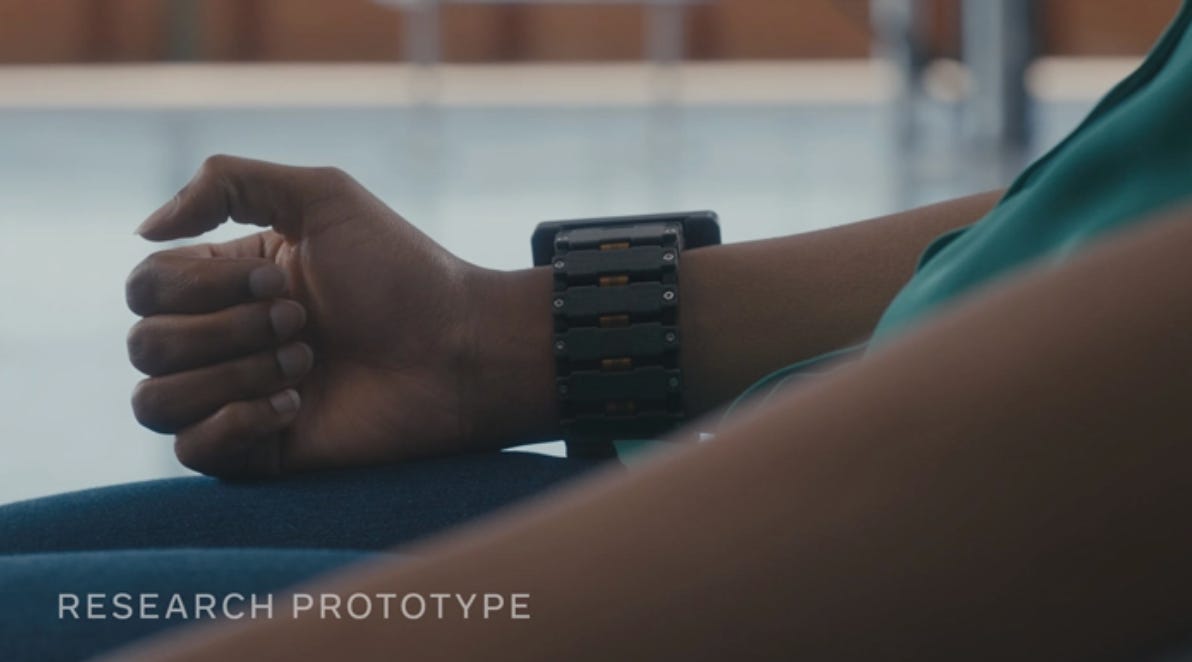
Facebook’s CTRL-Labs acquisition was very similar to that of buying Oculus, but it’s like if Microsoft bought one of the few mouse companies in the world during the 70s.
If all goes well then the EMG can replace the mouse and we can interface with computers in ways that aren’t even possible. Facebook mainly sees the usage of this device being with smart glasses according to blog posts.
Niantic, Facebook, Google, and Amazon and Smart Glasses
As mentioned in the last section, Facebook has big Smart Glasses ambitions with already announcing a smart-glasses product suite in partnership with Ray-Ban.
Smart glasses are a new form of hardware that essentially puts all of the computing capabilities of your phone onto a pair of glasses that you can wear. Imagine needing directions and the ground simply lights up underneath you towards your destination or being able to try on clothes before you buy them.
That’s the magic of smart glasses and augmented reality (a form of media that augments computer images into reality).
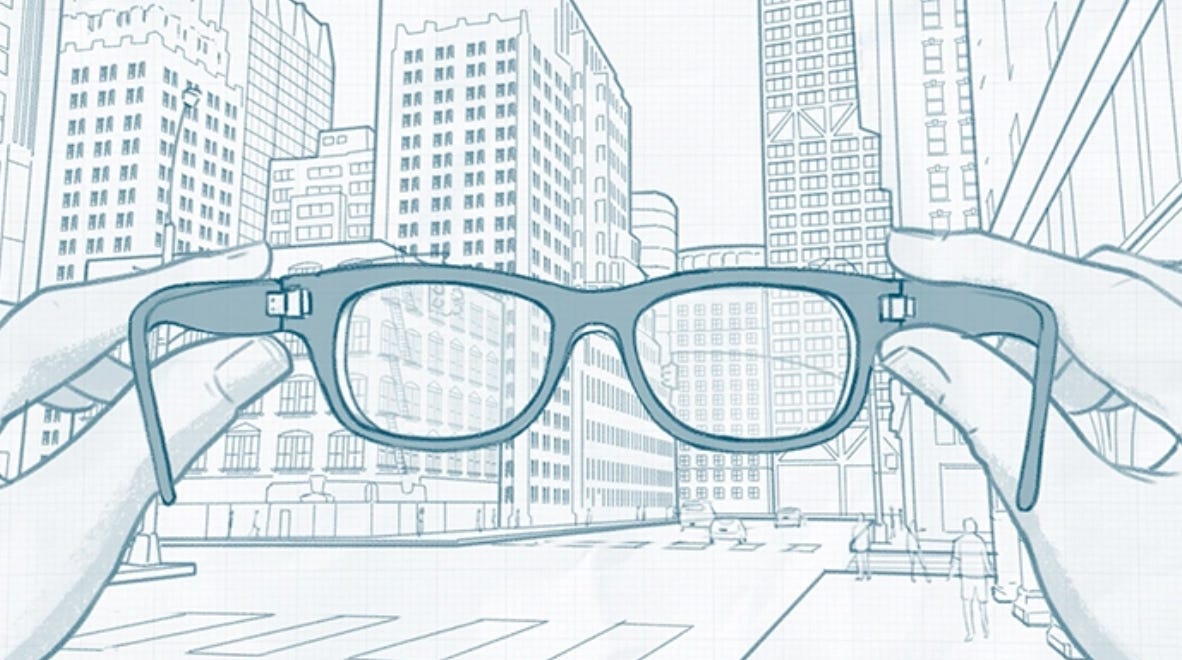
However, Facebook is not the only company racing to create the world’s first pair of smart glasses. They’re facing off against all of the prior big tech companies mentioned prior and a smaller player known as Niantic.
Perhaps you haven’t heard of the company, Niantic, but I’m willing to bet you have guaranteed heard of Pokemon Go. They’re the company that developed that game and made it the biggest hit of 2016 and introduced augmented reality to billions of people.
They also have massive smart glasses ambitions as well and are working on their own product with Qualcomm.
However, the real fascinating part of Niantic is their development platform and the vision they seek to build for a more immersive Metaverse that is in tune with reality with these smart glasses.
I believe that we’re going to see the Metaverse not only be used with VR headsets, but also with smart glasses that allow us to wear virtual clothing in the real world and change our appearances, gamify reality to make us more productive, and be a real bicycle for our minds. It stands in stark contrast to the reality Facebook seeks to build that’s more immersive with virtual worlds and can create people who only live in the virtual reality. Niantic wants to combine the virtual and augment it with reality. It presents a far healthier view of technology, but I think the two will co-exist and that the AR Metaverse is criminally underrated.
It’s also likely that Meta is going to have to build an AR Metaverse for their smart glasses, and that’s an undertaking which will be fascinating to watch.
However, Niantic and Meta aren’t the only two players in the smartglasses race. Amazon has developed their own pair of Echo Frames that offer basic AI assistant features for around $180 dollars and was released last year. It’s nothing fancy but a good first step.
You’ve also probably heard of Google Glass—Google’s smart glasses test product that garnered a lot of media attention because it was extremely creep—the project was subsequently shut down. However, Google quietly acquired a company known as North for an undisclosed sum of money (probably $100 mil+) and has reportedly rebooted the Glass project.
It’s very unclear whether or not Google or Amazon seeks to build an augmented reality Metaverse, but they could acquihire teams or have secret divisions working on a Metaverse that we don’t even know exists.
Right now, the two leaders are Meta Platforms for virtual reality and Niantic for augmented reality.
However, a new player is beginning to appear in the east.
ByteDance’s latest acquisition
On August 30, 2021, TikTok parent owner, ByteDance, acquired Pico Interactive for $755 million dollars, and has expressed interest in the VR market. Pico Interactive’s Neo 3 Pro is mainly used in the enterprise, and this acquisition could represent ByteDance’s move into the Metaverse.
The Neo 3 Pro already has enterprise features and would be an easy way for ByteDance to dominate the enterprise VR market in an age of zoom fatigue. It also gives ByteDance the option to possibly dominate the extremely nascent enterprise Metaverse market. Who will win? We’ll just have to see how the cookie crumbles.
Looking Towards The New Reality
We’re at a turning point right now in the future of hardware with smart glasses and virtual reality headsets appearing to soon become the next big thing, and while these devices are incredible, we shouldn’t forget the degree of control that a few can have over the world. If you think Big Tech is bad today, imagine a world where a few companies can not only alter information but sight as we know it.
At the same time, we are also entering a world where we can be more productive and change how we communicate with others. It’s a brave new world of possibility and dangers, and since we’re early we have a rare chance of shaping it. Hardware may be hard, but the hard problems are the most satisfying to solve.
Thank you for reading, and do good in the world.


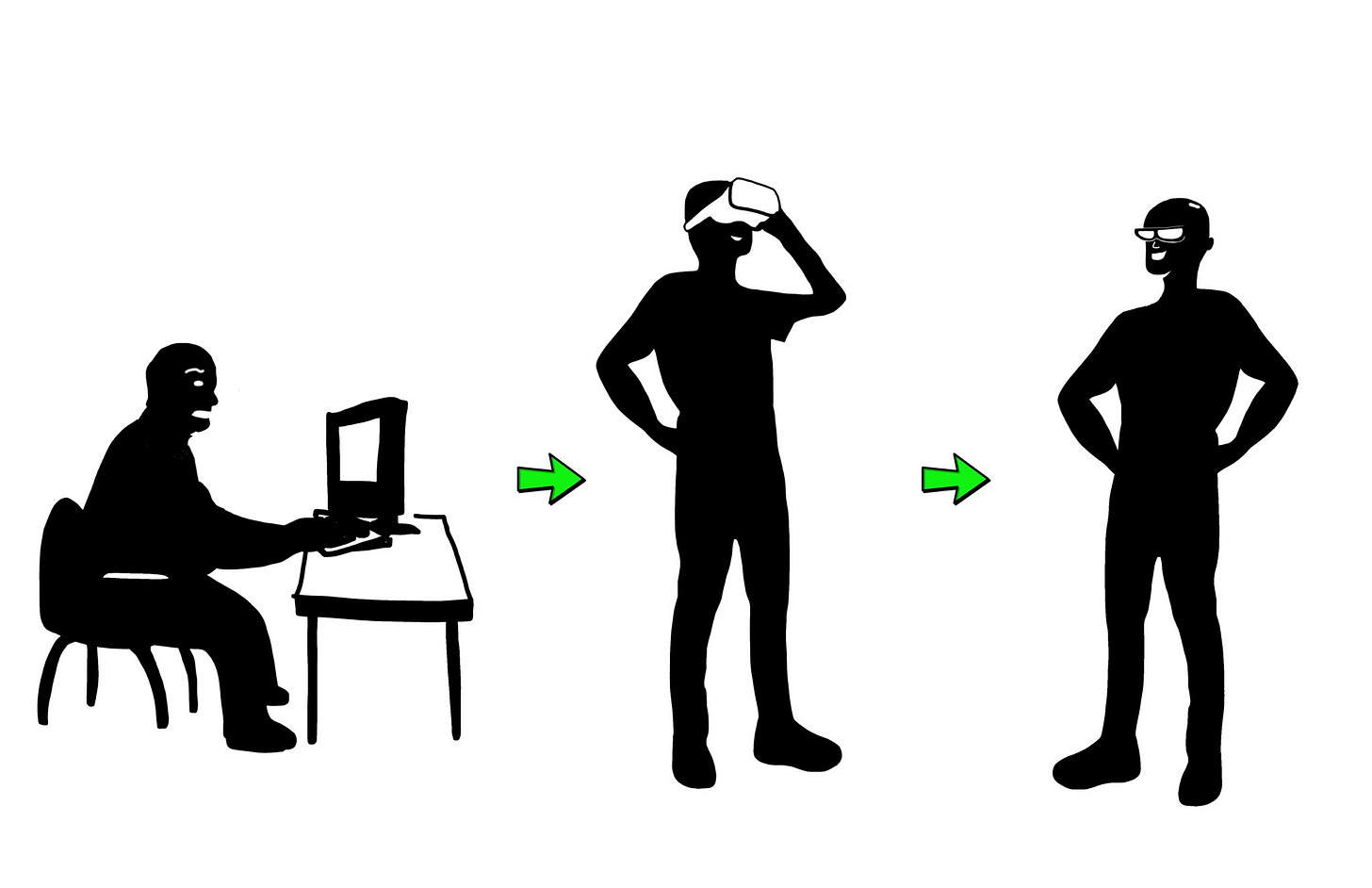


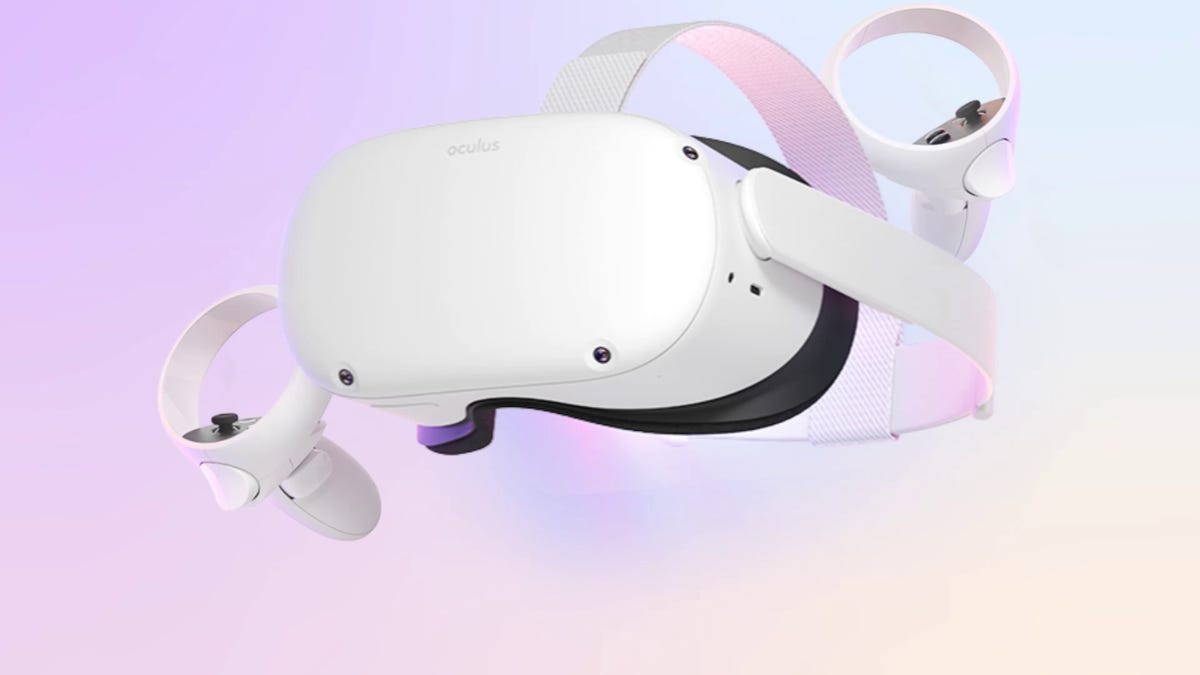

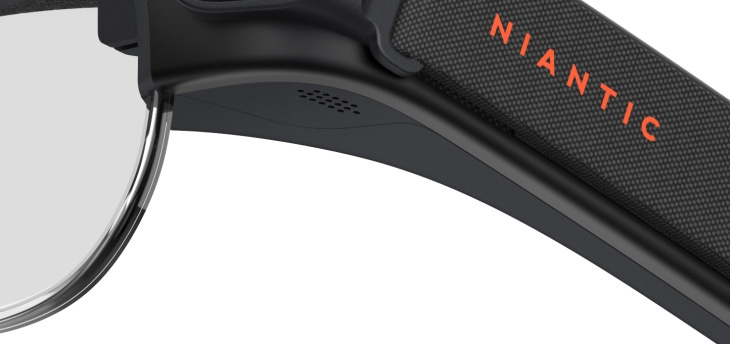

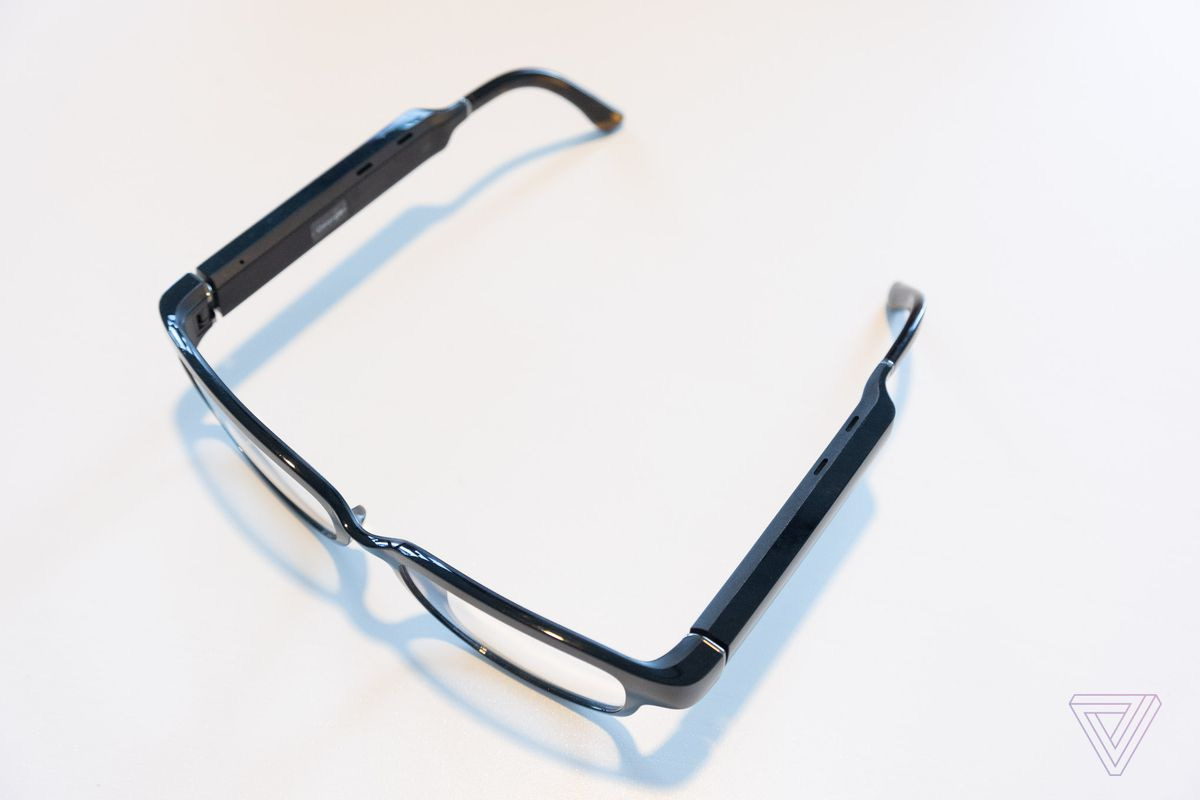
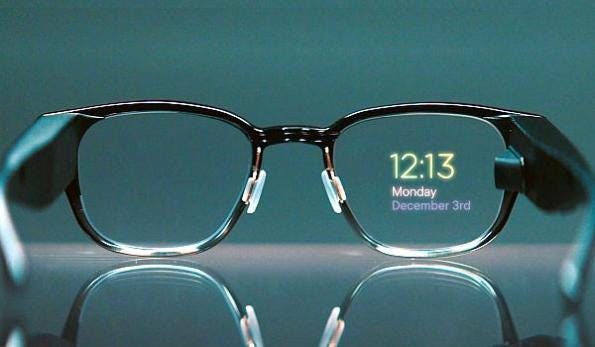

Would love to see Robin sit down with Palmer Lucky for an interview
This is a great write-up. Hats off to BowtiedRobin. Did the proper amount of research and presented us with an excellent summary. Thank you